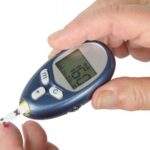The precise etiology of type 1 diabetes remains unknown. Typically, the body’s immune system, responsible for combating harmful bacteria and viruses, targets and destroys the insulin-producing cells (islet cells) within the pancreas. Genetic factors, exposure to viruses and environmental elements are among the potential contributing causes.
Once a substantial number of islet cells have been destroyed, the body’s ability to produce insulin becomes severely compromised. Insulin, a hormone generated by the pancreas, is released into the bloodstream, where it facilitates the entry of sugar into cells. By doing so, insulin regulates and reduces the amount of sugar in the bloodstream. Consequently, as blood sugar levels decrease, the pancreas decreases its insulin secretion into the bloodstream.
Glucose, which is a type of sugar, serves as a primary energy source for the cells constituting various tissues, including muscles. The body obtains glucose from two primary sources: food intake and the liver. Through the assistance of insulin, sugar is absorbed into the bloodstream and subsequently transported into cells. The liver stores excess glucose in the form of glycogen. When glucose levels dip, such as during periods of fasting, the liver converts stored glycogen back into glucose, thus maintaining glucose levels within the normal range.
In individuals with type 1 diabetes, the absence of insulin prevents the entry of glucose into cells. Consequently, sugar accumulates in the bloodstream, leading to potentially life-threatening complications.
Dr. Mangaiyarkkarasi Sivakumar, an esteemed specialist in Endocrinology, provides comprehensive diabetes treatment to residents in Kendall Park, Monmouth Junction, Helmetta, East Brunswick, Monroe Township, South Brunswick Township, Dayton, New Jersey.
VCare Diabetes Care in Dayton,NJ Book an Appointment / Call (888) 460 1151 / Walk-Ins also available

